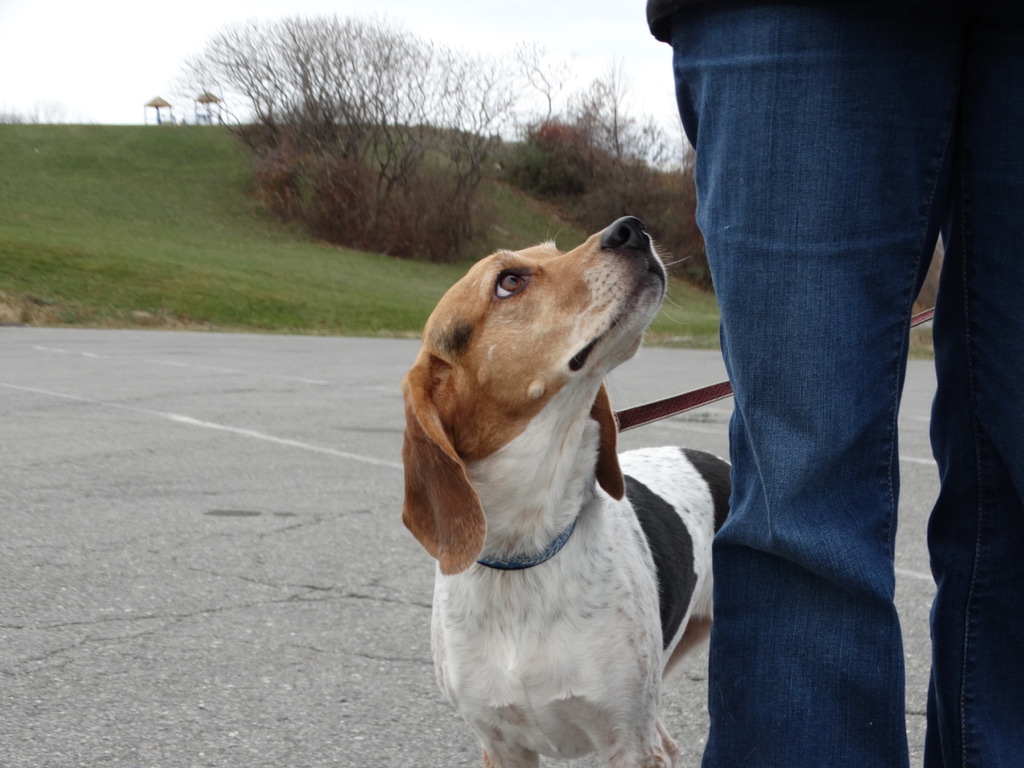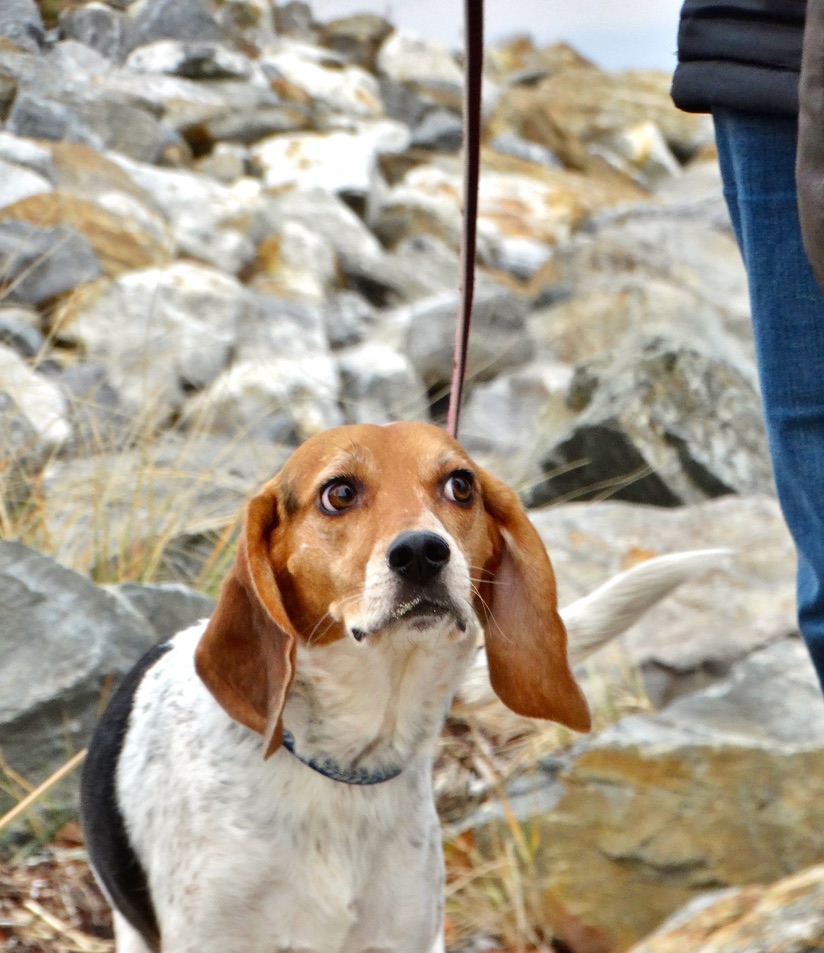Understanding your dog’s needs
When your dog is on a leash, you may see a change in your dog’s body shape or hear vocalization when approached by an unfamiliar person. The changes in your dog’s body shape tells you how she is feeling. These changes may be dramatic and occur quickly, showing a large change in your dog’s emotional state. These can include extreme wiggling, spinning, rushing about, rapid barking, lunging at the person, or trying to bite the leash or nearby dog.
You may see your dog become excited in greetings, noted by her attempt to jump up on the person with a wagging tail, while whining. Some handlers will see a more hesitant dog who attempts to hide behind them, often with a raised paw. This dog may also lean into their human while turning her head away from the stranger, or rolling on her back with a tucked tail. She may also attempt to go smell the roses.
If you have a confident, social dog, you will see very little change in your dog’s posture as she approaches a person calmly and remains still for petting. You may also see your dog’s body mechanics slow down, appear stiff and tense, showing concern.
Are you listening?
Dog ownership is about asking your dog many questions throughout his or her life. Asking and understanding her sociability is extremely important to prevent stressing her to the point she needs to bite someone to get her preferences understood. Your dog has likely already informed you about her sociability. It is up to you to support her so she does not have to endure rude strangers if she is not a highly social dog. Remember, she may not be fearful, but simply prefers petting from familiar people.
It is also up to you to prevent your overly social dog, from getting too close to strangers, as you know she will get really excited and jump up on them. This is a common adolescent dog habit that will decrease with you keeping her at a safe distance and rewarding her for a different behavior.
Examples:
Strangers who make eye contact with my German Shepherd Dog, Drake, receive an open mouth, soft blinking eye and a wag of his tail. He may try to approach them, telling me he is interested in greeting this person. If the setting is outdoors, Drake may decide smelling the environment is more important to him than greeting this person.
My last dog, Pablo, would often growl if a person made prolonged eye contact, which was his way of requesting space. Pablo was a mix of many guard dog breeds, including, Chow, German Shepherd, Cattle Dog and Doberman Pinscher. He preferred familiar people touching him. Over the years, many people asked me if they could pet Pablo. When he was between the ages of 1 to 5 years old, I would say “he is not that social”. After 5 years of age, I began to say, “you can ask him”. When they tried to engage him, he would sometimes approach and lean on them with a soft body, wagging tail, and opened mouth. With some people, however, he would show his teeth while looking directly at them. I would tell them, “he is not interested in greeting you”.
He never bit anyone when on a leash because I saw the signs of avoidance when he was less then a year old. By slowing all greetings down for him, he had time to growl or air snap to let people know he did not want to be touched. I never punished this as it was his preference. Have you ever had anyone tell you “you should be more social!” How did this make you feel? Did you change your sociability just for their needs?
Manage the setting
With frequent visitors or family members, ask them to get settled before you bring out your dog. Greetings between humans can be full of excited emotions which can increase some dogs’ arousal. Greet your friends before you include your dog in this exciting setting.
Consider adding a “DO NOT PET”, sleeve on her collar, harness, or leash, if it is difficult for you to speak up on behalf of your dog.
Summary
Be consistent when in public settings so your dog can learn to trust that you will prevent strangers from reaching out. Eventually she will relax, knowing you are not going to put pressure on her to greet unfamiliar people.



